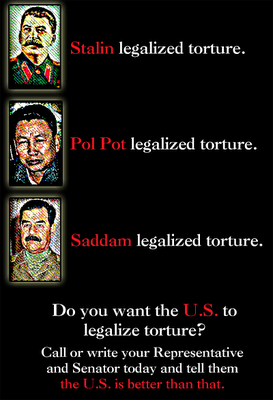It's a few days late, but I thought I'd post my memories of 9/11. I had moved to New York three weeks before to begin law school and I was living in a crappy apartment on the corner of Thompson and Bleecker in lower Manhattan.
On the morning of September 11th, I woke up around 9 and walked 2 blocks down Bleecker to Coles, the NYU gym. The gym is mostly underground, with about a single story's worth of building above ground. It has a roof where students and alumni can play tennis and jog. I liked jogging there because I could avoid the hassles of traffic and pedestrians on the streets. As soon as I got on top of the roof and started running south, I could see that both of the towers of the World Trade Center were on fire.
There had been a lightning storm the night before and I assumed the fires were somehow related to that. It didn't occur to me to wonder why both towers were burning—the likelihood of even one building catching fire from a lightning strike must be quite low, since I've never heard of this happening ever in NYC or anywhere else. I don't know if the fact that I kept on jogging was attributable to morning grogginess, general naivete and immaturity, my marginal powers of observation, sheer incomprehension, or some combination of the above. There were a couple other diehard idiots like myself jogging, but mostly people were standing, watching or filming with handheld cameras. "Silly tourists," I thought, "haven’t they ever seen a building/mountain on fire before?" thinking back to a couple late-summer fires on the dry mountains around Provo, from where I had come to NYC three weeks earlier to start law school. I assumed the buildings had been evacuated before the fires got to that stage, or that people had just not gone in to work yet if there had been a fire the night before.
Both towers were still standing by the time I finished and went downstairs to exit the building. There are TVs in the lounge area near the entrance at Coles, and I saw the burning towers on the news and went to watch. A girl standing next to me said something like, "Those f#$%ers, I can't believe this." "What do you mean?" I asked. And she said, "They hit them on purpose." I watched for another minute, then went outside to take another look. The streets were crowded with people, many of whom were gathered in the middle of the intersection of Bleecker and Mercer, staring southward, oblivious to traffic. They were upset, anxious, and confused, talking in worried voices. I walked to where they were and looked back. Only one tower was left.
I thought about this as I walked home. How could the building collapse if it had only been on fire near the top? How could a small aircraft do that kind of damage to such a large building? Was there a missile or something? It didn't make any sense. I didn't know what the hell was going on.
People were gathered again where Bleecker crosses LaGuardia. I looked downtown as I passed, then to Thompson and my apartment. My roommate was out of town at the time, later I would sit in his room, glued to the TV for days while he waited in Miami to take a bus back to New York. I tried calling home but couldn't get through. I didn't really have anyone to call in New York yet, but I could tell the phones were useless. I left the windows open so I could hear what was going on in the street. After a little while I heard yells from outside and rushed to the window just in time to see the second tower collapsing in a cloud of dust. I think there was a crashing sound, but I don't really remember since I’ve seen it now on TV so many times.
It occurred to me that my family might be worried, even though I lived about a mile and a half from the towers. I went to the computer lab at the law school and emailed family and friends to let everyone know I was ok. Then I went upstairs to my torts classroom, unsure whether we would have class that day as scheduled at 10:40. Umm, no.
I went back to the apartment to watch the news some more. I don't remember much about the coverage at that point, but at some point a newscaster must have mentioned that people were donating blood at local hospitals. I decided that sounded better than sitting in my apartment feeling helpless. Newspeople were speculating that there would be a mass of wounded people hitting the hospitals soon. I walked over to St. Vincent's Hospital on 7th Avenue and Greenwich, only to find that they had all the donors they needed. I walked uptown to the NYU Medical Center on East 32nd Street and 1st Avenue. On my way up I finally got through to my mom and let her know I was fine. There was no need for donors at NYU either. As it turned out, there were very few wounded—most people in the buildings either made it out ok or were killed.
I have no memory of the rest of the day. I think I watched TV all that day and for the next few days until my roommate got back. I felt a real affinity for Tom Brokaw and Peter Jennings—they were trying to make some sense of what had happened and was happening, and I latched on to their authority and compassion. I cried when I saw the vigils broadcast from Moscow, Sydney, London, and elsewhere. I felt alone, but not, somehow, since there was such a feeling of unity and common purpose that was so obvious in the responses from around the world. I saw the footage of some Palestinians celebrating. At first I thought there must be some mistake—how could anyone celebrate such a thing?
At some point either that day or in the ensuing days, they cordoned off everything below 14th Street to non-residents. There were no cars on the streets. They evacuated people below Houston, which was a block south of my apartment. There was a heavy, stinky smoke in the air for days. I shut the windows but it still seeped in. When the trains started up again, I went to Brooklyn to visit a friend I had met a week or two before and saw the smoke rising from Ground Zero into the blue sky. I went to Washington Square at night to look at the candlelit pictures and messages people had put on the chain link fences surrounding the arch, which was under renovation. There were pictures of missing people posted all over, like pictures people put up if a pet runs away, except these were for people. Desperate pleas, “Have you seen _________, please call 917-________,” over pictures of attractive, smiling young women and men. I thought there must be some chance of finding these people, somehow—why else would people put up so many flyers, hundreds of different ones? Most of them came down in the next week or so as people realized they weren’t going to pull anyone else out of the rubble, but some stayed up for weeks.
A few nights after 9/11, I was asleep in bed sometime between 2 and 4 a.m. when something woke me up. I gradually realized there was yelling going on outside my second-story window on Thompson Street. It got louder and I woke up more fully and looked outside just in time to see a firefighter take a swing at a man on the street below. There was a firetruck parked in the middle of the road, and one or two other firefighters surrounding the man. One of the other firefighters managed to pull off the attacking firefighter and break up the fight. They left after awhile and I went back to sleep. I’ll always wonder why the firefighter punched the guy. The firehouse on W. 3rd a couple blocks away had flowers outside it and pictures of the men who had died. I don’t know whether the firefighters on the street were from that firehouse, but I imagine they were pretty stressed out and sad after everything they’d been through.
I worried about another attack, but I thought statistically the chances I would die were slim. Anything seemed possible since what had happened had been so inconceivable. In the weeks after 9/11, a researcher/pundit spoke at the law school about further possible attacks. It was in the middle of the anthrax scare, and he told us about the Cipro he had bought for his children. He talked about how another attack, correctly placed, could cripple the transportation network that brought food into Manhattan. There would be chaos and a complete breakdown of society. People wouldn’t be able to get out, and deaths could be in the tens of thousands or higher. It sounded plausible to me at the time, but I never considered leaving the city. I didn’t feel particularly vulnerable, even living in lower Manhattan. I had lived abroad and I knew how powerful we were relative to other countries. We had the strength and resources to weather a crisis like this and to protect ourselves in the future. I worried more about what we might do to others.
I remember a feeling of intense rage when it became clear we were going to invade Afghanistan. “If we kill even one innocent person there because of this, then we’re no better than the terrorists,” I thought. Now, after absorbing the general consensus in the U.S. that invading Afghanistan was the right thing to do, I don’t feel so sure. But is that consensus justified? Many of the people we killed there were innocent, and they are certainly dead now. Invading Iraq was not justified, and now there are at least 41,000 dead civilians there according to iraqbodycount.net, probably many more given the methodology of the project. In short, some of my worst fears about our response to 9/11 have already been realized; I’m afraid of what may come next.










